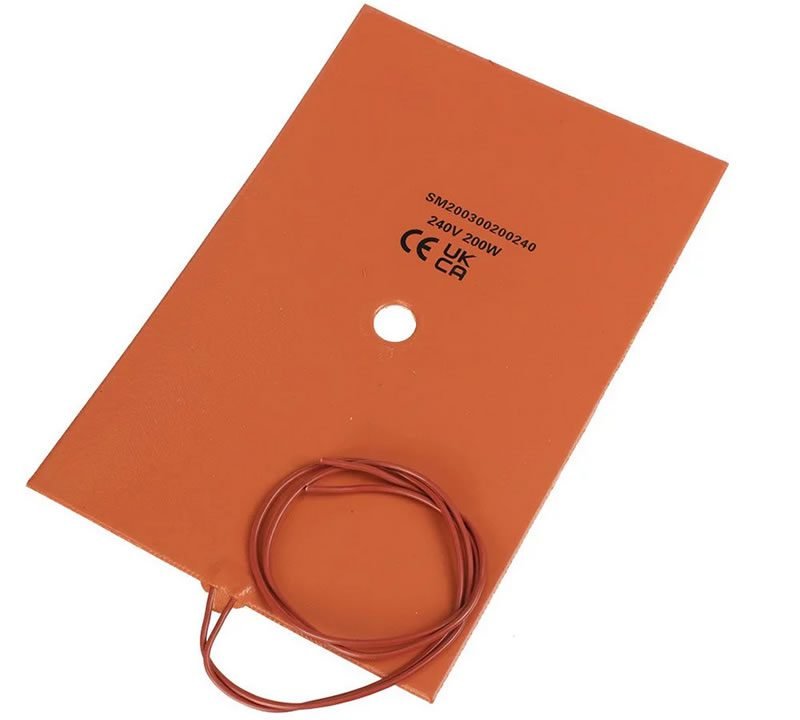What Are Silicone Heating Elements
Silicone heating elements are made by placing a heating element between two sheets of silicone rubber. The silicone acts as a heat conductor and insulation, protecting the internal elements from external factors. These heaters are known for their flexibility, resistance to chemicals and moisture, and precise temperature control.Examples Of What Silicone Heating Elements Are Used For
Precise Heat DistributionThis type of heating element is perfect for applications requiring precise, targeted heating. They can be designed to fit almost any shape, ensuring an even distribution of heat across the entire surface.
Catering
Food counters in commercial kitchens rely on silicone heaters to maintain food temperature and quality. Silicone heaters ensure that food stays warm, preventing it from becoming unpalatable due to cooling.
Aircraft Repairs
In the aerospace industry, they are invaluable for repairing faulty or damaged parts. Their reliability and efficiency help ensure timely and effective repairs.
Laboratory Equipment
Laboratories require heavy-duty heating elements capable of withstanding impacts and distributing heat safely. Silicone is the ideal material for this application, providing both safety and reliability.
Temperature Control
Our silicone heating elements are suitable for a wide range of industrial applications that require temperature control. We offer variations with sensor pockets and built-in sensors, as well as thermostat heating elements.
Tank Heating
They can also efficiently distribute heat in tanks. Their flexible design allows them to conform to the tank's shape, ensuring even heating.
Space Saving
For applications where space is limited, silicone heating elements are an ideal choice. They provide heat right to the edge of the product, fitting perfectly in the available space.
Complex Shapes
The silicone variation can be designed to accommodate difficult shapes, curves, and intricate angles. They are guaranteed to provide effective heating for your specific application, even with holes to suit specific surfaces.
Why Choose Under Control Silicone Heating Elements?
Under Control has extensive experience in providing high-quality heating elements for various applications. With this in mind, it's safe to say we have a lot of knowledge when it comes to what silicone heating elements are used for. Our products are tailored to meet the specific needs of customers in the commercial and industrial sectors. We offer a wide range of elements, ensuring that you find the perfect fit for your requirements.
FAQs
What makes silicone heating elements different from other types?Silicone heaters are known for their flexibility, chemical and moisture resistance, and precise temperature control. They can be designed to fit almost any shape, making them ideal for a wide range of applications.
Can I use them for irregular shapes?
Yes, this type in particular can be designed to accommodate complex shapes, curves, and intricate angles.
Are silicone heating elements safe for food applications?
Yes, they are commonly used in commercial kitchens to maintain food temperature and quality.
Contact us
If you are looking to buy the above product, or you require assistance don't hesitate to contact Under Control. As leading suppliers of catering spares, heating elements, and vent and gas interlocking systems, our expert team is more than willing to share their expertise.
Call 0121 238 2795 OR explore our website for more information.

